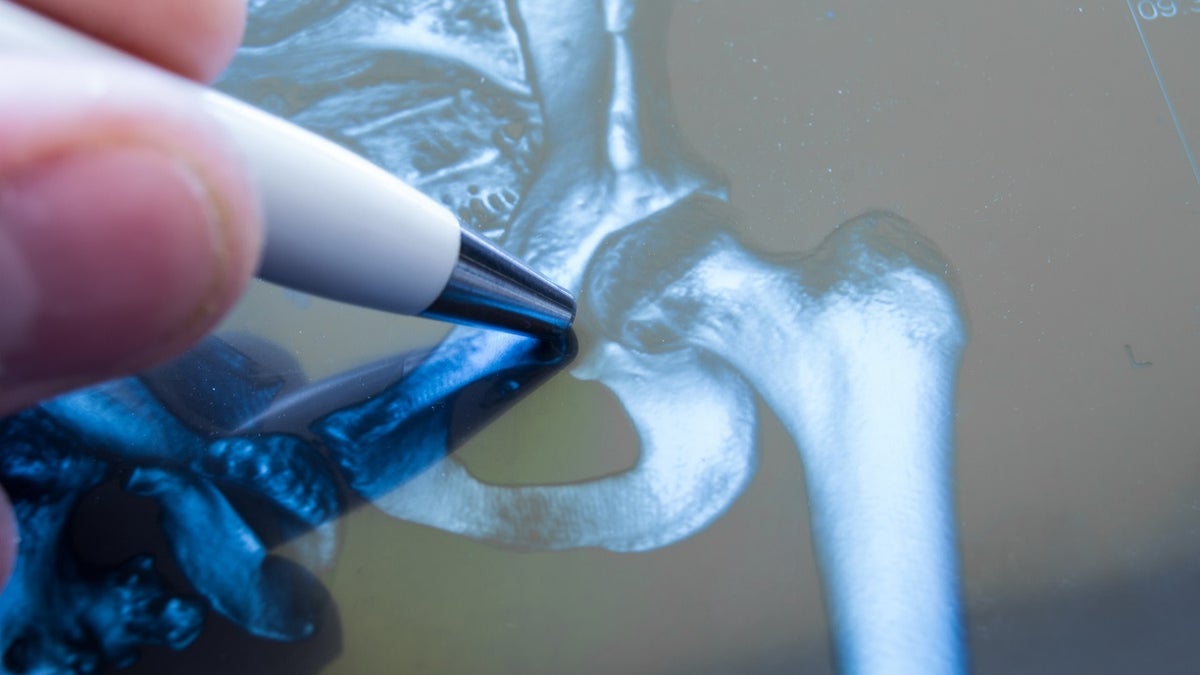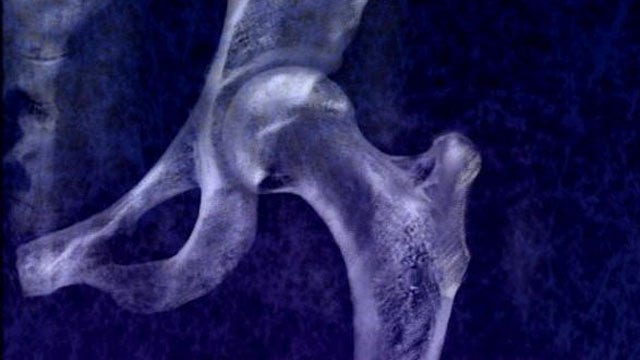"America’s Got Talent" alum Jackie Evancho, who was the runner-up on the program in 2010 when she was just 10 years old, is raising awareness that young patients who have battled anorexia nervosa may also have a medical condition generally reserved for post-menopausal women — osteoporosis.
"They were abnormal breaks, breaks that you see in 80-year-olds," the singer recently said in an interview with People about the broken bones she experienced.
"That's how I learned that my eating problems created osteoporosis. So now I'm a 22-year-old with osteoporosis."
OSTEOPOROTIC FRACTURES POSE SERIOUS HARM TO MEN, TOO: STUDY
Her eating disorder started when she was a teenager, at age 15, she said.
"I noticed that I looked a little bigger to myself, so I asked my mom, 'Do I look fat?' And she was like, 'No, no, that's just baby fat,'" Evancho told People.
Fox News Digital reached out to Evancho for comment.

Singer Jackie Evancho revealed that her eating problems have led to osteoporosis as a young woman of just 22 years old. ( Donald Kravitz/Getty Images)
"So I decided that I was going to start to mildly diet and start working out regularly," she also said.
Dr. Madhusmita Misra, a professor of pediatrics at Harvard Medical School in Boston, Mass., told Fox News Digital, "Anorexia nervosa is a condition of weight loss or low body weight with an altered body image that is associated with alterations in body composition and many hormones that then impact bone deleteriously."
The eating disorder requires a patient to have three diagnostic criteria.
The eating disorder requires a patient to have three diagnostic criteria, according to the Diagnostic and Statistical Manual of Mental Disorders, Fifth Edition, which clinicians use to diagnose mental health disorders.
The manual notes a patient restricts calories below the necessary dietary requirements — leading to a significantly low body weight in the context of the patient’s age, sex and physical health.

Osteoporosis is a bone disease that raises the risk of fractures and breaks. Many patients with anorexia nervosa don’t appreciate the condition’s profound impact on their bone health, one endocrinologist said. (iStock)
The patient also describes an "intense fear" of gaining weight or "becoming fat" despite their significant low weight — while also having a distorted body image or lack of awareness of how a low body weight is harmful to their body.
"People with anorexia generally restrict the number of calories and the types of food they eat," according to materials from the National Eating Disorders Association.
COVID-19 INFECTION CAUSES MENTAL HEALTH ISSUES, EATING DISORDERS: STUDIES
"Some people with the disorder also exercise compulsively, purge via vomiting and laxatives, and/or binge-eat."
"These patients undergo profound bone loss that can be very difficult to treat short of regaining the lost weight."
But many patients with anorexia nervosa don’t appreciate the condition’s profound impact on bone health, said Dr. Sundeep Khosla, endocrinologist and professor of medicine at Mayo Clinic College of Medicine and Science in Rochester, Minn.
"In particular, these patients undergo profound bone loss that can be very difficult to treat short of regaining the lost weight," he told Fox News Digital.
WOMAN BATTLING ANOREXIA SAYS GIRLS' TRIP SAVED HER LIFE
These patients are at "very high risk" for low bone density, reduced bone strength and fractures, noted Dr. Misra as well. She is also the division chief of pediatric endocrinology at Massachusetts General Hospital in Boston.
Recent history of fractures
One clue that someone with anorexia nervosa has significant bone loss is a recent history of fractures.
Estrogen is essential for bone development, especially as children are growing; so when levels fall, patients start to experience bone loss.
Evancho first learned she had osteoporosis after she was hospitalized for a car accident in January 2021 when she was diagnosed with spinal fractures resembling those of an 80-year-old, according to what she has shared.
Approximately 90% of women with anorexia nervosa have low bone mineral density and a seven-fold higher risk of having a fracture compared to similar aged women with normal body weight, according to a review published by the Endocrine Society in 2018.

The cover of a 2017 Jackie Evancho album, "Two Hearts," is pictured here. Her eating disorder worsened during the COVID-19 pandemic, she said.
The condition has a lifetime prevalence of 2.2% in women, with a peak age of onset between 13 and 18 years old, per the Endocrine Society.
When women starve their bodies over time, their sex hormones fall, often leading to irregular menstrual cycles or no cycles at all, according to the National Eating Disorders Association.
Patients with the eating disorder also produce excessive cortisol, which may also trigger bone loss.
Yet estrogen is essential for bone development, especially as children are growing; so when levels fall, patients start to experience bone loss, the association added.
Patients with the eating disorder also produce excessive cortisol, which may also trigger bone loss. They may also develop calcium deficiency and have low levels of growth hormone, per the National Institutes of Health.
"The best strategy to improve bone outcomes includes weight regain and a resumption of menses in women who stop having periods, as the associated low estrogen levels contribute a great deal to low bone density," Misra added.

Women who have an eating disorder should request a skeletal health assessment, one physician told Fox News Digital. (iStock)
These women should also request having a skeletal health assessment done, including bone mineral density testing, Khosla added.
"I had to eat [for my bones] to heal, and that really messed me up with my eating problems, because I was gaining weight to heal," Evancho said to People.
"I'm still struggling, but I'm fighting, which is good because a year ago I was giving in to it completely."
She started to get outpatient treatment when was 17, but after her eating disorder worsened during the COVID-19 pandemic, she eventually sought inpatient treatment last October, according to People.
"I'm still struggling, but I'm fighting, which is good because a year ago I was giving in to it completely, and that's so dark and painful," Evancho also said in the same interview.
FOLLOW US ON FACEBOOK FOR MORE LIFESTYLE NEWS
"Only ∼50% to 60% of women with this disorder recover [more than] 20 years after their initial diagnosis and therefore the state of negative energy balance is chronic for many patients with anorexia nervosa," according to the Endocrine Society.
"I'm not healthy yet, but I have been able to implement healthy coping skills and better eating habits," Evancho said.
CLICK HERE TO GET THE FOX NEWS APP
If you or someone you know might have an eating disorder, the National Eating Disorders Association may be able to help.








































